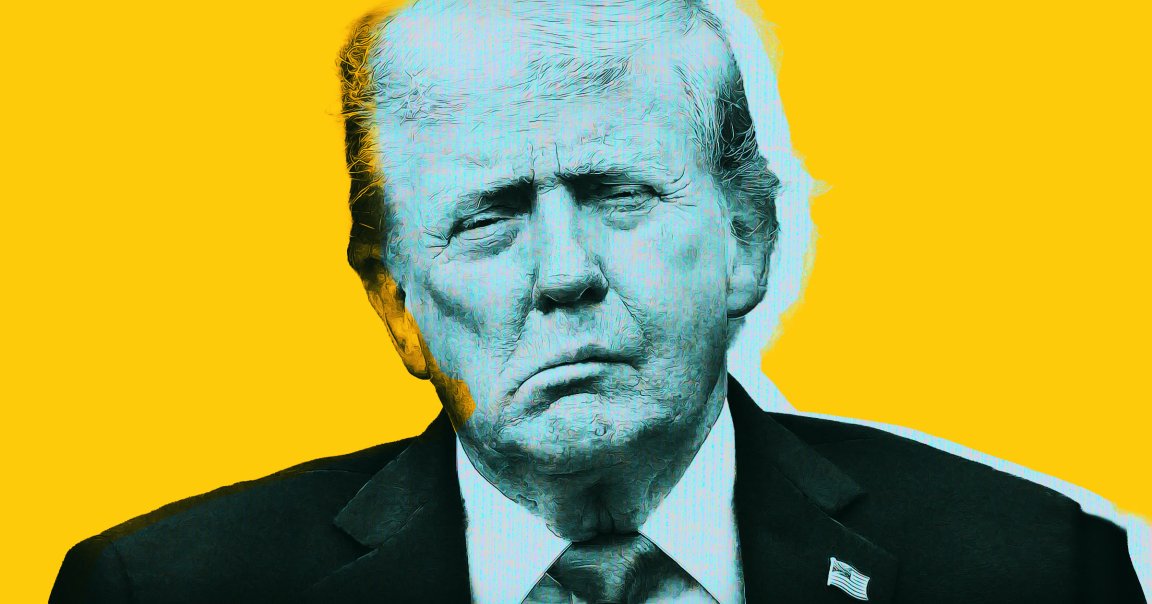
Partisan politics in the United States makes for a generally contentious atmosphere But these days, the mainstream rift isn’t just between blue and red — even some of president Donald Trump’s most diehard fanatics have become openly belligerent over the president’s obsession with AI.
Following the release this summer of president Trump’s “AI Action Plan” — a sweeping blueprint outlining the white house’s strategy to ramp up AI development while slashing regulation — a number of far-right stalwarts from Marjorie Taylor Greene to Steven Bannon have ripped into Trump over his tech policies.
“I have many concerns about the AI Executive Order signed yesterday by President Trump,” Taylor Greene wrote on X-formerly-Twitter, the day after Trump’s “Preventing Woke AI in the Federal Government” executive order.
“My deep concerns are that the EO [executive order] demands rapid AI expansion with little to no guardrails and breaks,” the Georgia representative continued. “This needs a careful and wise approach. The AI EO takes the opposite.”
And Bannon, a longtime Trump loyalist who briefly served as Trump’s chief strategist at the outset of his first term, compared the approach to “summoning the demon,” according to new reporting from Politico. The former Trump aide also made headlines in early September when he joined conspiracy theorist Laura Loomer in a scathing critique of the president’s photo-op dinner with tech tycoons including Mark Zuckerberg and Bill Gates.
“There isn’t a single Trump supporter who is going to be happy to see this photo tonight,” Loomer said in a post on X-formerly-Twitter. “Zuckerberg and Gates belong in prison. Not at the dinner table with President Trump.”
Candace Owens, another formerly prominent personality in Trump media circles, went a step further when she rescinded her support for Trump this summer, saying that she was “embarrassed” to have campaigned for the president during his 2024 election bid.
While Owens hasn’t criticized Trump’s AI policy directly, she has blasted the tech in the past, calling software like Elon Musk’s Grok an “inherent danger.”
Other political characters in the outer rings of the Trump orbit are also taking issue with the president’s embrace of AI. Tennessee Senator Marsha Blackburn — who recently cheered as Trump signed an order deploying hundreds of federal agents and National Guard troops to her home city of Memphis — has likewise spurned the president over an AI regulation provision in the “Big Beautiful Bill.”
“This provision could allow Big Tech to continue to exploit kids, creators, and conservatives,” Blackburn said in a statement at the time. “Until Congress passes federally preemptive legislation like the Kids Online Safety Act and an online privacy framework, we can’t block states from making laws that protect their citizens.”
The rift highlights a fascinating contradiction between Trump’s ideological supporters and his moneyed interests: essentially, it’s the “drain the swamp” style conservative populists who voted him into the office versus the billionaire tech bros whose vast fortunes are now deeply embedded in the US economy.
“The base’s concerns about Big Tech are colliding with Silicon Valley’s influence in this administration,” Mark Beall, former Director of Strategy and Policy at the Department of Defense’s Joint Artificial Intelligence Center, told Politico.
When it comes to Trump’s AI ambitions, Wynton Hall, the social media director at the right wing publication Breitbart concurred.
“There is within the conservative movement certainly a concern about child safety, mental health, all those things,” he told Politico. “The transhumanism stuff is also a real concern for conservatives.”
More on Trump: A Sitting President Is Making Billions Off Crypto, Which Feels Like a Bit of an Outrage